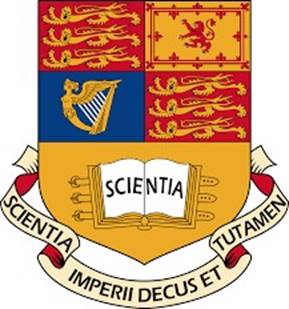
 |

INTERNATIONAL SCIENTIFIC AND PRACTICAL CONFERENCE
"MODERN PSYCHOLOGY AND PEDAGOGY: PROBLEMS AND SOLUTION"
2-part, 2-639 pages.
Committee List for
2021-2022
Members Of The Editorial Board:
1. Dame Sally Davis (Chief Medical Officer).
2. Sir Bruce Keogh (medical director of the National Health Service).
3. David Livingstone (congregationalist pioneer medical missionary in South Africa–Charing Cross Hospital).
4. Norman Morris (Obstetrician and healthcare reformer).
5. Albert Neuberger (chemical pathologist).
6. William Kitchen Parker (physician and zoologist).
7. Sir Andrew Pollard (Chief Investigator on the Oxford–AstraZeneca COVID-19 vaccine).
8. Sir Rodney Robert Porter (Nobel Laureate, Physiology and Medicine) 9. Ann Redgrave (orthopaedic surgery).
2
|
Sayfullaeva Madina Ismatovna, Mansurova Makhliyo OPPORTUNITIES TO REVIVE TOURISM AFTER PANDEMIC |
193 |
|
Shodiyeva Lutfiya INNOVATIVE CLUSTER OF PEDAGOGICAL EDUCATION: COMMON GOALS AND SPECIFIC INTERESTS |
199 |
|
Shodmanov Dostonbek THE DEVELOPMENT OF SPEAKING IN THE CONTEXT OF TEACHING ENGLISH AS A FOREIGN LANGUAGE |
203 |
|
Shohmurod Berdiqulov TURLI DARAJADAGI TALABALARDA SO’Z BOYLIGINI OSHIRISHNI O’RGATISHNING KOMMUNIKATIV METODLARI |
209 |
|
Shohrux Saidmurodov MILLIY BURJUAZIYANING SHAKLLANISHI VA UNING TURKISTON O'LKASI IQTISODIYOTIGA TA'SIRI |
214 |
|
Shukurova Nodira Nazimovna INNOVATIVE TEACHING METHODS OF VOCABULARY FOR ESP LEARNERS |
219 |
|
Sodiqova GulshodaYusufovna GORIZONTGA QIYA OTILGAN JISM HARAKATI |
225 |
|
Tillayeva Nodira MAKTAB O'QUVCHILARINING IJTIMOIY MOSLASHUVINING PSIXOLOGIK XUSUSIYATLARI |
231 |
|
To’liyeva Shoira Ilhomovna O’ZBEK TILI VA UNING DAVLAT TILI SIFATIDAGI MAVQEI |
236 |
|
Toshmatov Ulugʻbek Qadirjon oʻgʻli, Jamoliddinova Xurshidabonu Toʻychiboy qizi HAZRAT MIR ALISHER NAVOI, SULTAN OF PROPERTY, FOUNDER OF TURKISH LANGUAGES, BRIGHT REPRESENTATIVE OF UZBEK LITERATURE. |
239 |
|
Tugalova Laylo HOW TO TEACH THE PRONUNCIATION PROBLEMS OF UZBEK LEARNERS OF FOREIGN LANGUAGES |
243 |
|
Turdiyev Jaxongir Djura o‘g‘li KORXONALARDA BOSHQARUV HISOBI VA HISOBOTI TIZIMINI TAKOMILLASHTIRISH |
248 |
|
Ubaydullaeva Nafisa Murodjonovna USE OF INTERDISCIPLINARY COMMUNICATIONS IN ENGLISH LEARNING |
260 |
|
Vahobova Feruzakhon Bakhtiyorjon qizi, Abdullayev Behruz Abdunazar o‘g‘li KORXONA BUDJETINI TUZISH MUAMMOLARI VA UNI BOSHQARUV HISOBIDAGI O’RNI |
264 |
|
Xasanov Mahmudjan Abduraxmanovich, Karimova Umida Erkinovna MORPHOPHONOLOGY IN THE ENGLISH LANGUAGES |
274 |
|
Xikmatov Diyorbek VIRTUAL REALITY AS A NEW METHOD OF TEACHING FOREIGN LANGUAGE |
279 |
|
Xomidova Xurshidaxon Mamirovna ONA TILINI O`QITISHNING UMUMDIDAKTIK VA O`ZIGA XOS PRINSIPLARI |
284 |
|
Yoqubjonova Mexrinoz Yaxyojon qizi TOG’AY MURODNING “OTAMDAN QOLGAN DALALAR” ASARINING SEMANTIK GRAMMATIK XUSUSIYATLARI |
296 |
|
Yunusov Ismat Inogomovich, Niyazov Sunnat Sagdullayevich |
300 |
5
HAZRAT MIR ALISHER NAVOI, SULTAN OF PROPERTY, FOUNDER OF TURKISH LANGUAGES, BRIGHT REPRESENTATIVE OF UZBEK LITERATURE.
https://doi.org/10.5281/zenodo.6464788
Toshmatov Ulugʻbek Qadirjon oʻgʻli
Student of Fergana Polytechnic Institute
Jamoliddinova Xurshidabonu Toʻychiboy qizi Student of Fergana Polytechnic Institute
Annotation: The article tells about the life and work of Mir Alisher Navoi, the Sultan of the World of Property, the founder of the Turkic and Uzbek languages. The great poet and thinker talks about his life, childhood memories and the first steps in poetry. In the article you can read the poems of the poet.
Key words: Turkic, Herat, Mavzesi, Amirzoda, Mikdosh, Mantikut Tayr, Hazrat, Hadith, Persian, Seal, Astrobod, Madrasah, Work, Khanakoks, Basin, Mukarrabi, Hilalia, Khamsa, Panj, Ganj, Fuzola, Epos, Mutos, shepherd.
In life, everyone sees the face of the world and comes into the world to do something good. The good deeds that he did throughout his life will leave an indelible mark on this world. There were many people in the past. But only those who left an indelible mark on the hearts of people with their work and hard work throughout their lives will be remembered. One of such great people is Hazrat Nizamiddin Mir Alisher Navoi. Alisher Navoi, the Sultan of Uzbek vocabulary and the founder of the Turkic languages, was born on February 9, 1441, in the area of the Garden State House of Herat, in the family of Giyosiddin Bakhodir, a civil servant close to the Timurid dynasty. His father, Gyosiddin Muhammad (also known as Gyosiddin the Younger), was a worthy official and a respected figure in the Timurid court. Her mother was the daughter of Prince Sheikh Abuseyd Chang (full name unknown). Alisher's grandfather was a cousin of Timur's son Umarshaikh. Navoi's interest in science woke up at an early age, and at the age of four he went to school. From an early age, he was distinguished from his peers by his interest in poetry and literature. Thanks to his sharp mind, at the age of seven, he completely memorized the “Manticut-Tair” of Farididdin Attor. Bukhari was able to read over six thousand hadiths. He began writing poetry and poems at the age of seven or eight before entering adolescence. At the age of fifteen or sixteen, Alisher Navoi was known as a poet who could write in both Turkish and Persian. Most of Alisher's youth was spent in the palace. For this reason, he grew up under special education and supervision. During his stay at the palace, he spent most of his time reading books and writing poetry.
One of the bright personalities of the poet was his childhood friend Hussein Boykaro. From an early age, they were brought up together, and their minds were honed in science lessons. After the accession to the Khorasan throne of Hussein Boykaro (1469), a new stage began in the life and work of Navoi. In the years 14801500, he built several madrasahs, 40 rabats (places for travelers to stop), 17 mosques, 10 khanakas, 9 baths, 9 bridges, 20 pools. Hussein Boykaro gave Alisher Navoi the title of sultan-mukarrabi (the closest person to the sultan). According to him, Navoi could interfere in all the affairs of the state[1]. The best adviser among his ministers was Alisher Navoi. In his works, he often described his friend Hussein Boykaro. He loved his friend very much. He was constantly given correct and reasonable advice in the field of public administration. Hussein Boykaro wrote a 90-byte poem "Hilalia" on the occasion of his accession to the throne (1968).
("Hilal" - new moon). In this way he was able to show his love for his friend.
In his works, Alisher Navoi directed people. Science has taught people to learn, to do good deeds, and to be kind to each other. He preferred poetry to everything else. Even as a minister, he did not slow down in writing poetry. Through his love of poetry, he was able to achieve a high level of respect among the people. Adam and Alisher were very loved and respected. They listened with pleasure to each of his works, poems and poems. There seems to be a wonderful magic in his poems. He taught people to love and be loved.
Ko'rgali husnungni zoru mubtalo bo'ldum sanga, Ne balolig' kun edikim, oshno bo'ldum sanga. Har necha dedimki kun-kundin uzay sendin ko'ngul, Vahki, kun-kundin batarrak mubtalo bo'ldum sanga. Men qachon dedim: "Vafo qilg'il manga" zulm aylading, Sen qachon deding: "Fido bo'lg'il manga" bo'ldim sanga.
Qay pari paykarga dersen telba bo'ldung bu sifat, Ey pari paykar, ne qilsang qil manga, bo'ldum sanga.
Ey ko'ngul, tarki nasihat aylading ovora bo'l,
Yuz balo yetmaski, men ham bir balo bo'ldum sanga.
Jomi Jam birla Xizr suyi nasibimdur mudom,
Soqiyo, to tarki joh aylab gado bo'ldum sanga.
G'ussa changidin navoe topmadim ushshoq aro, To Navoiydek asiru benavo bo'ldum sanga.
The greatest works that Alisher Navoi introduced to the world are the works of "Khamsa". Illuminated by such deep thoughts, these works evoke deep positive thoughts in the heart of every reader. To this day, it amazes scientists all over the world and makes them study the poet's work. It has been scientifically proven that every sentence is worth its weight in gold, and that it cannot be compared with the great talent of Navoi and the vultures of his pen when compiling world works. All this proves that the poet is very talented.
Hamsa has a long history of creation. In the second half of the twelfth and the beginning of the thirteenth centuries, Makhzan ul-Asrar (1174-1177), Khusrav and Shirin (1181), Leyli and Majnun (1188), Haft Paykar (Seven Goys) of the hall, 1197) and Iskandarnoma ( 1199-1201) in the sense) a very common book with their names, translated into various languages and gained fame. Individual epics from this book have inspired several poets to write major epics on the subject.[2] Alisher Navoi will complete five Khamsa works in two years. When he first created "Hamsa" in Turkish. Scientists and physicists of that time considered this work a product of high creativity. Warm thoughts are expressed by the miraculous pen of the poet.
The last days of Alisher Navoi's life were very difficult and painful. The losses of the early 1940s, especially the loss of his 40-year-old lover Pakhlavon Muhammad and his mentor Jami, had a profound effect on the poet. Alisher Navoi, the sultan of the kingdom of words, poet, thinker and statesman, who won the hearts of many people, died on April 3, 1501. The whole people, from the king to the beggar, from the scientist to the shepherd, from the poet to the farmer, mourn the death of his great son with longing and longing.
In conclusion, we, the children of our great ancestors, should be proud of this. We need to continue the creative work of these people with great respect for their contribution to science. Because we are great people, our children, every Uzbek boy can do great things. The blood of our grandfather flows in our veins, as does Alisher Navoi. We must be a worthy young generation.
LIST OF USED LITERATURE:
1. "Navoiy gʻazallari" kitobi.
2. Alisher Navoiy "HAMSA", Nasriy bayon, «SHARQ» nashriyot- matbaa aksiyodarlik kompaniyasi bosh tahriryati. Toshkent-2016
1. 3.Aziz Qayumov, "Hayrat ul-abror" talqini. Toshkent-1977
3. Aziz Qayumov, "Hamsa" asarining 20 jildligi. Toshkent-1974
Материалы на данной страницы взяты из открытых источников либо размещены пользователем в соответствии с договором-офертой сайта. Вы можете сообщить о нарушении.